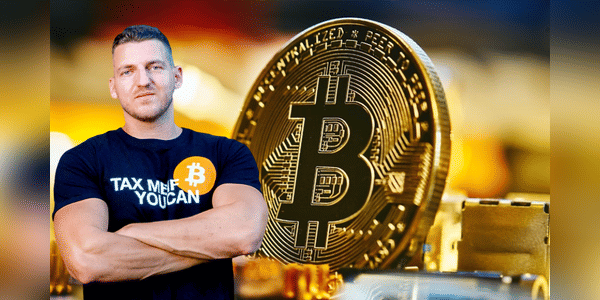Lukačovič, Vávra and Gladiš are wrong, I can easily refute their arguments about Bitcoin
Recently, the future and viability of Bitcoin in the years to come has often been discussed. In previous weeks I have presented you with rather skeptical opinions and negative views, which will change today and we will look at the other side of the coin and the counter arguments of an avid bitcoiner, which is Jan Kohout.

Can you introduce yourself?
Hi, my name is Jan Kohout. I'm an avid bitcoiner and co-founder of the YouTube showKryptoplebs
, which serves about the education of bitcoin, but also moneyfrom
the perspective of psychology, philosophy and history.
We'll start with generalities first, then get into the statements of famous personalities, where I'll be interested in your counterargument.
How do you perceive Bitcoin? What does it represent to you?
I perceive bitcoin primarily as a tool for personal freedom. For the first time in history, we have a technology that allows anyone to very efficiently move value anytime, anywhere in the world without permission and without…
great job
We have seen several such problems this year, for example, in Canada, where bank funds have been frozen not only to truckers protesting againstgovernment measures, but also directly to the companies that own the trucks, andnot least to the contributors who have raised funds to support these protests
SVB Financial Group
sfdsfaxxzczxvb
how i choosing a classy broker?
i like investing in bitcoin
i like you nice
https://www.dfa.ms.gov/sites/default/files/webform/gaap_debt_questionnaire/_sid_/megan-hdu.pdfhttps://www.dfa.ms.gov/sites/default/files/webform/gaap_debt_questionnaire/_sid_/megan-hdu_0.pdfhttps://www.dfa.ms.gov/sites/default/files/webform/gaap_debt_questionnaire/_sid_/megan-flix.pdfhttps://www.dfa.ms.gov/sites/default/files/webform/gaap_debt_questionnaire/_sid_/megan-free.pdfhttps://www.dfa.ms.gov/sites/default/files/webform/gaap_debt_questionnaire/_sid_/megan-fullhd.pdfhttps://www.dfa.ms.gov/sites/default/files/webform/gaap_debt_questionnaire/_sid_/megan-full4k.pdfhttps://www.dfa.ms.gov/sites/default/files/webform/gaap_debt_questionnaire/_sid_/megan-123movies.pdfhttps://www.dfa.ms.gov/sites/default/files/webform/gaap_debt_questionnaire/_sid_/megan-putlocker.pdfhttps://www.dfa.ms.gov/sites/default/files/webform/gaap_debt_questionnaire/_sid_/megan-videos.pdfhttps://www.dfa.ms.gov/sites/default/files/webform/gaap_debt_questionnaire/_sid_/megan-4k.pdf
Çoğunuz hisse senetlerine, bonolara, ETS'ye veya MF'lere yatırım yapmadığımı biliyorsunuz. Lütfen bundan sonra söyleyeceğim şeyi DİNLEMEYİN: "Kağıt varlıklardan kurtulurdum." Dünya ekonomisi bir “Pazar” değildir. Ekonominin dünya tarihindeki en büyük balon olduğuna inanıyorum. Allah hepimize merhamet etsin.45454
Nice read!